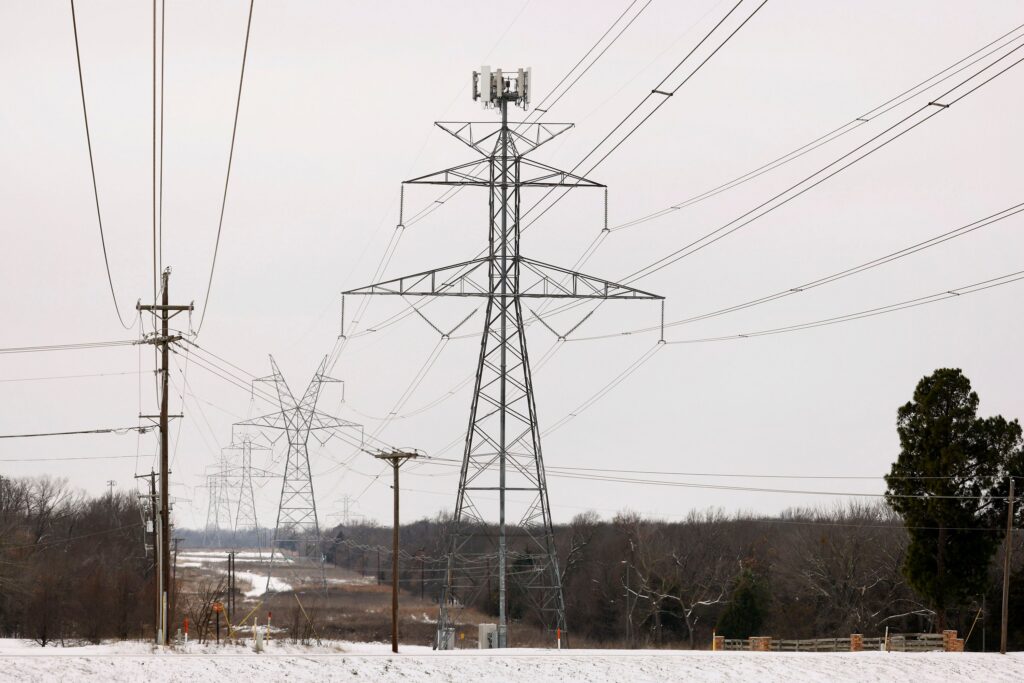Bennet’s Keystone approval farsighted, not noxious

U.S. House Republicans are poised to push their legislative pet issue, the Keystone XL pipeline bill, down Pennsylvania Avenue and onto the President’s desk this week after a 62-36 Senate majority okayed the amended measure on Jan. 29.
The White House has consistently hurled veto threats at lawmakers. But the GOP-led Congress has rolled up its sleeves and clinched its fists, ready to pick a marquee fight.
Congressional Republicans see the pipeline legislation as a manifest of their power. The GOP leadership is willing to dish up an affront to the president who — per his job description — has the executive say in international matters such as the construction of an $8 billion, 1,179-mile cross-border pipeline from the oil sand fields in Alberta, Can., to Steele City, Neb., where it would connect existing pipelines to the refineries along the U.S. Gulf Coast.
Among the senators who let the controversial bill through on the nod was a united Colorado duo — Republican Cory Gardner and Democrat Michael Bennet.
Bennet, too? Yes. Michael Bennet, too. He was one of nine Democrats who joined the entire present GOP caucus in a bipartisan thumps-up.
Bennet has consistently supported the pipeline. Last year that earned him vocal protests outside both his Denver and D.C. offices from pipeline-phobic environmental groups who let Bennet know publicly that he may as well take responsibility for the final nail in the climate change coffin.
Political pundits had a less apocalyptic sense of why Bennet would shoo the left wing of his party; after all, a centrist, pro-Keystone, reelection-seeking senator from a purple state, which developed darker shades of red in 2014, has a much better chance of convincing an electorate that approves the pipeline in large swaths.
But Bennet’s vote wasn’t exclusively power-political maneuvering. Breaking ranks with his caucus was clever politics and smart policy.
Seven (!) years into the Keystone controversy, the legislative debate is a splintered, barely fixable mess. The extremist flanks on both sides have resorted to throwing rhetoric grenades from the safe haven of their ideological trenches.
Mounting the barricades, conservationists — as per usual — fire their silver bullet: climate change. Processing crude oil from the Canadian tar sands means up to 20 percent higher greenhouse gas emissions than for oil typically consumed in the U.S. The green lobby has the science to back up that figure. The catch: Even if Keystone XL never finds its way four feet under, the Canadian crude oil will still travel to the Gulf Coast via a network of other pipelines and on the back of trains, which statistically pose a higher risk of accidents and spills than a pipeline. Just think back to last July when 72 derailed tanker cars caused havoc and killed 47 people in Canada’s Quebec province — by no means an isolated incident.
Based on that assessment, the State Department, which is expected soon to recommend to President Obama how to proceed with Keystone, has determined that TransCanada Corp’s pipeline wouldn’t significantly increase emissions on a broad scale.
On the other side lurks the oil lobby. As with every major endeavor, they hail to the economic activity (read: jobs) it will create — 42,100, in the case of the Keystone XL pipeline. Subtract the labor that is only needed for the 12 to 24 months of construction, and you are left with about 50 long-term operational jobs, as per a 2014 State Department calculation. Fifty.
The environmental corps has its focal argument in the higher carbon content of tar sands. The construction of the pipeline would lower transportation costs and accelerate the development of those Alberta fields in the face of plummeting oil prices, ergo, more emissions.
But pipeline supporters also bring a valid argument to the table: American energy independence. One of the major suppliers of U.S. crude oil is a less-than-stable Venezuelan regime, which lingers on the brink of bankruptcy over crumbling prices for its prime export good.
The stalemate diplomacy of European powerhouses such as Germany in the Ukraine conflict illustrates the geopolitical implications of energy dependence. As they scramble to find a strong response to Russian aggression on the Crimean peninsula and in eastern Ukraine, the hands of the likes of Chancellor Merkel are tied. Too much economic output depends on the drip-feed of Putin’s fuel valve.
But further securing U.S. energy independence, which in this case means partnering up with a reliable friend to the north, isn’t the only reason Bennet and the band of Democratic Keystone dissidents made their choice (personal political considerations left aside). By giving in on this bill, they live to fight another day in the broader energy debate.
Refusing to go all-in on an isolated, yet much-publicized, piece of legislation, they preserved the parley leverage for that oncoming moment when energy efficiency, carbon emissions taxes and other major climate change measures pop back up on the Congressional agenda. Bennet repeatedly instructed his spokesman, Adam Bozzi, to make clear that he wants to develop a broad strategy to reduce carbon pollution and support renewable energy instead of focusing on only one narrow issue.
Critics have to understand that not building Keystone XL won’t change the tide. More than anything, the pipeline would be an updated transport vehicle that helps secure a safe and geopolitically sound energy supply, which is needed to fuel growing economic activity, while the ratio of fossil fuel to clean energy production will continue to shift in favor of the latter. Proponents of the pipeline need to accept that reality: Approving Keystone XL doesn’t mean that it is any less imminent for all government branches to consent to the terms of broad, internationally agreed-upon measures to address our changing climate.
Lars Gesing is the editorial intern at The Colorado Statesman. He covers Colorado politics with the true outsider’s perspective of a native German. Contact him at lars@coloradostatesman.com and follow him on Twitter @LarsGesing
Colorado Politics Must-Reads:














